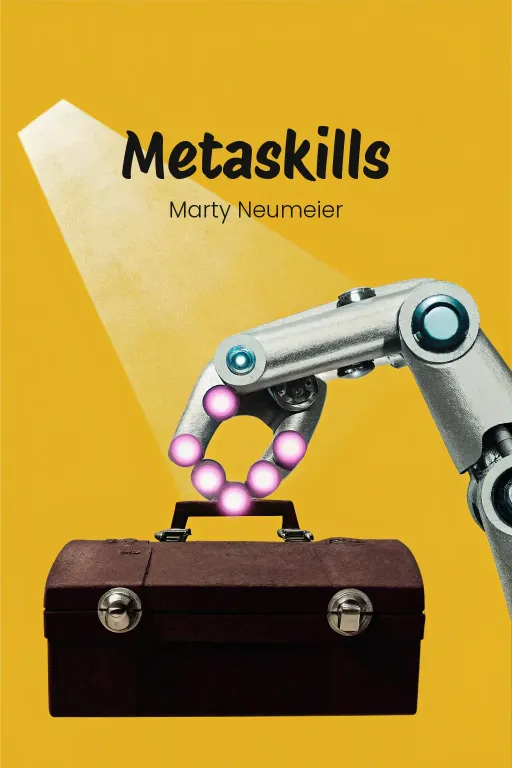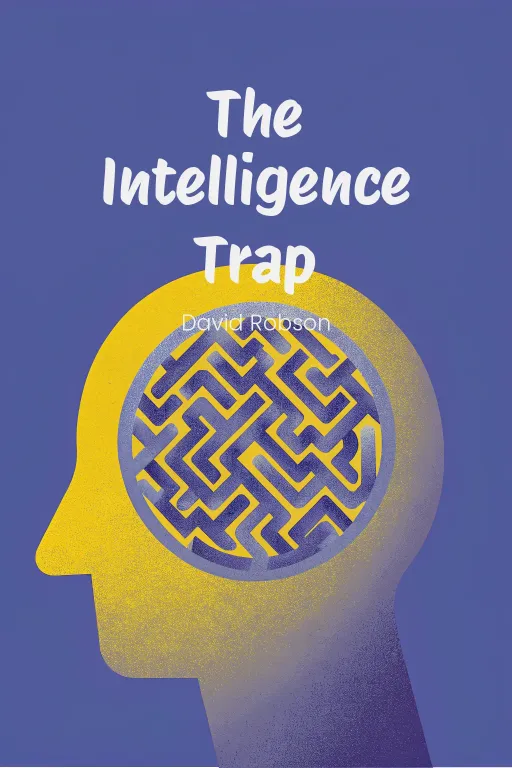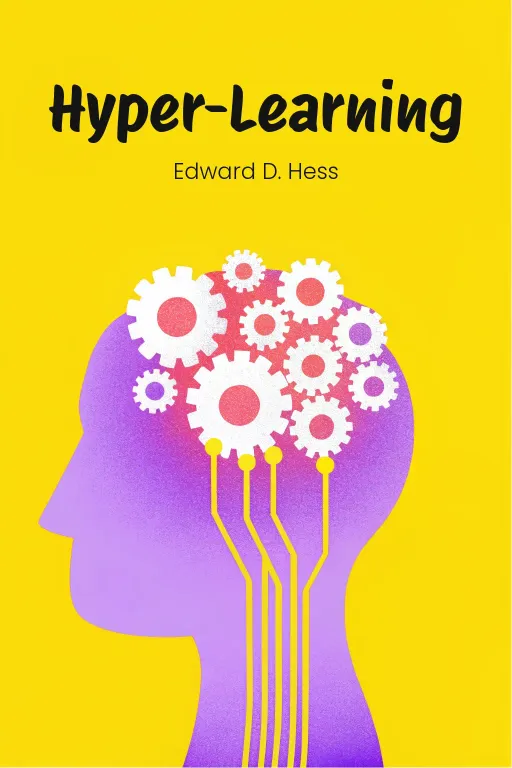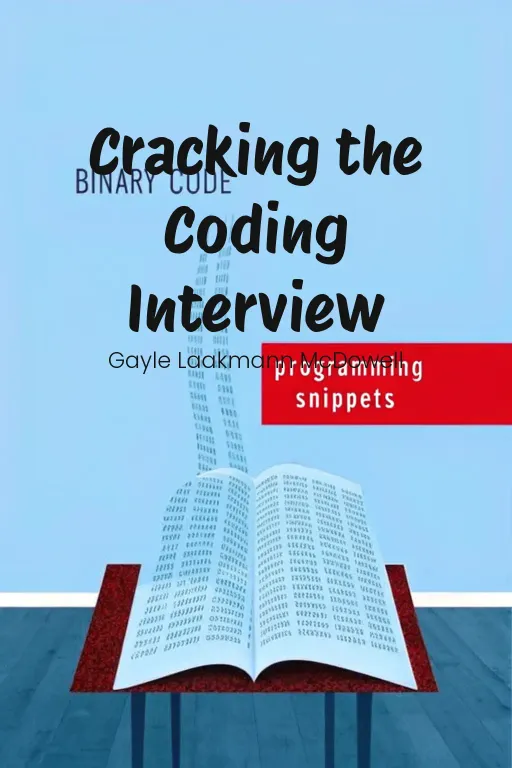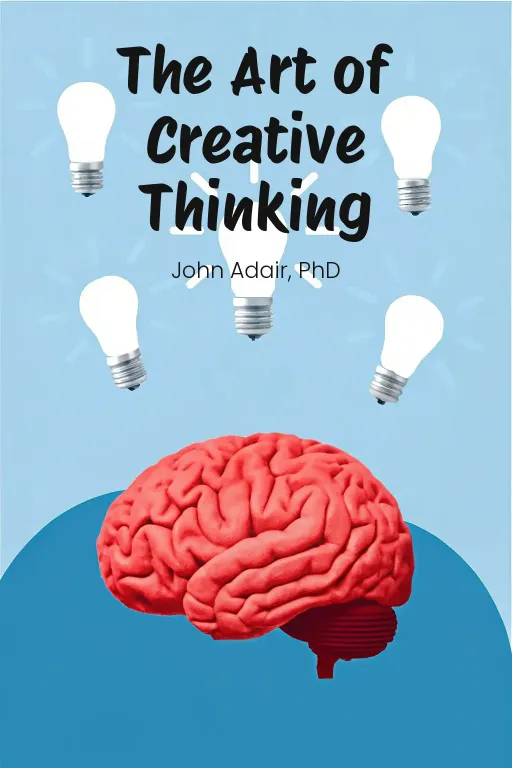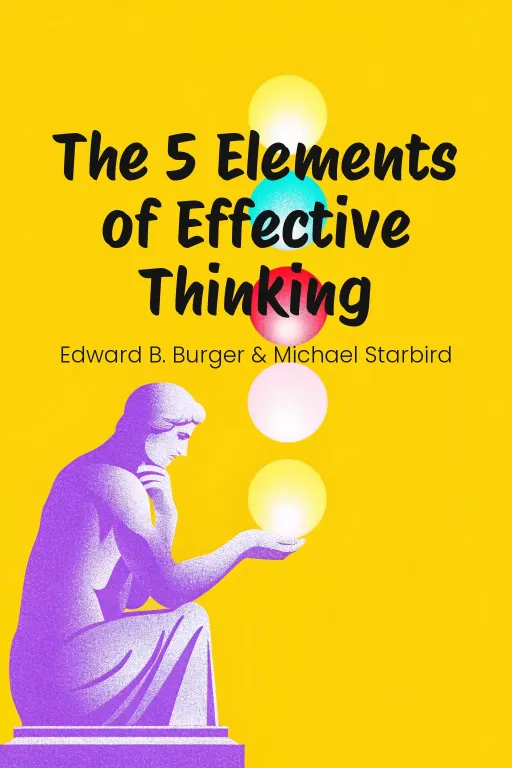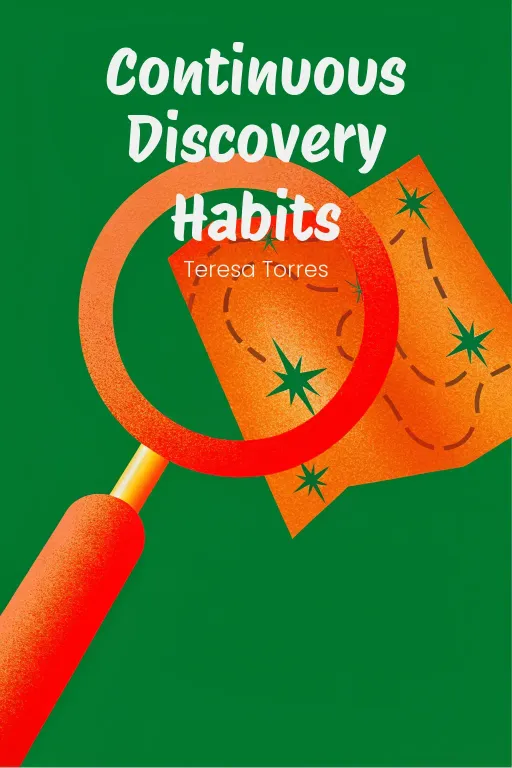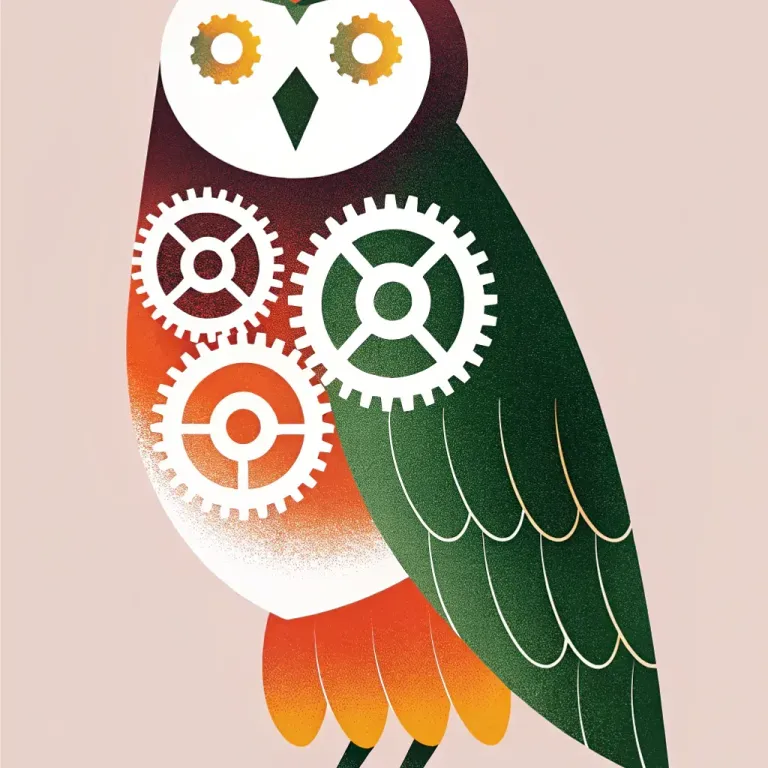
Adapt or Obsolete: Thrive in the Robot Age
Podcast by Chasing Sparks with Alex and Justine
Five Talents for The Robotic Age
Adapt or Obsolete: Thrive in the Robot Age
Part 1
Alex: Ever feel like the world's spinning too fast? Like the skills that used to guarantee success are, well, not so relevant anymore? Justine: Absolutely! I mean, my engineering degree taught me a lot about machines but not exactly how to deal with the robot apocalypse, you know? Alex: Exactly, Justine! That's what we're diving into today—how we, as individuals and as a society, can adapt, not just to survive, but really thrive in this rapidly changing world. Justine: Right. The core argument is pretty simple: Industrial-age thinking just doesn't cut it anymore. To handle all the technological, economic, and social changes coming our way, we need "metaskills"—like creativity, adaptability, emotional intelligence—those uniquely human qualities that machines can't replicate. Alex: Exactly. The author calls this the "Robotic Age," where adaptability is “really” key. And it's not just about individuals; it's about how our education system, organizations, and society, as a whole, can embrace complexity. Justine: So, what exactly are we going to cover today? Alex: Great question! We'll break it down into three parts. First, we need to diagnose the problem. Why are our current systems, particularly education, falling short in this fast-paced era? Justine: You mean, why do schools still feel like they're prepping us for factory work instead of, you know, navigating the chaos? Alex: Precisely! Then, we'll get into the solution: the metaskills we need to cultivate, like creativity and emotional intelligence— essentially, what humans uniquely bring to the table when facing automation. Justine: Okay, so after the "what" and "why," we get to the "how." How can we reshape education and society to encourage these skills? I suspect that this involves some pretty radical approaches, right? Alex: Radical, yes, but definitely necessary. What’s “really” exciting is how the book blends art and science, hands-on learning, and collaboration to rethink education and problem-solving for the future. Justine: Alright, buckle up everyone. We’re diagnosing the cracks, rethinking solutions, and engineering the social systems of tomorrow. It’s all on the table today.
The Need for Transformation
Part 2
Alex: Okay, so let’s dive right in, shall we? I think the core issue here is that the systems we depend on, especially education, just feel…disconnected from what the world actually needs. It really boils down to how these systems were originally designed way back in the industrial era. Back then it was all about predictability, efficiency, not so much about creativity or being adaptable. Justine: Right, and it all comes back to that factory idea. I mean, schools were, in a way, just training grounds for factory workers, right? Punctual, obedient, task-oriented. But now that those factories are becoming obsolete, that whole model is kind of falling apart. Are we surprised that kids aren’t engaged when their learning feels as exciting as an assembly line? Alex: Exactly! And what’s really interesting is how this outdated design isn't just failing students, it’s failing society too. Like, think about the tech industry. They’re desperate for problem-solvers, creative thinkers, people with a real vision. And yet, they can’t seem to find enough talent that’s truly prepared. Justine: Hang on, let’s dig into that a little. Sure, tech giants like Google or Tesla need technical skills. That's a given. That’s the base level. But what they really want is the ability to innovate, to come up with ideas that machines can’t. You’re not going to get that just by memorizing facts for an exam. Alex: Precisely. And it’s not just tech. Look at how automation is taking over many middle-income jobs, like in manufacturing or just processing data. All those routine tasks that our education systems trained people for? They’re disappearing. What’s left are jobs that need creativity, emotional intelligence, collaboration. Things that you can't really program into a machine, can you? Justine: Exactly, and here’s the kicker: it’s not working out on a personal level either. Remember when the go-to advice was "just go to college"? Now, we've got countless graduates with degrees struggling to find work, because what they studied just doesn't match the needs of the workforce. A lot of people end up asking "what's the point of what I studied?" Alex: That gap, that disconnect, is what they call the "skills gap." A big reason behind it is that schools still depend on standardized testing – which, by the way, comes from the industrial era. It focuses on repetition and fitting in, not challenging the norm. You know, pushing boundaries, asking 'what if?' Sir Ken Robinson hit the nail on the head when he pointed out that it really stifles creativity. Justine: Uh-huh, standardized testing is like asking everyone to climb the same ladder, no matter if their talent is in painting the ladder, building a better one, or asking why we need ladders at all in the first place. Alex: Perfect way to put it, Justine. And what's worse, this 'one-size-fits-all' way of doing things isn't only bad for kids who are creatively inclined. It also pushes away students who could do well if they had different conditions, like hands-on experiences or dynamic challenges. There’s a reason why we see disengagement and dropout rates as chronic problems. Justine: Okay, so we agree, this industrial model has to go. But what’s the alternative? We can’t just burn the whole system down and hope for genius minds to emerge from the ashes, right? Alex: Well, that's where we get into metaskills. These are things like creativity, systemic thinking, emotional intelligence... they're not just 'nice-to-haves' you know? They're essential for the future. These skills work across different industries and keep changing as time goes on. Justine: "Metaskills," huh? Let me guess, is that one of those buzzwords that consultants throw around at company retreats? It sounds interesting, but what does it actually mean? Alex: Fair enough! Think of metaskills as the software our minds need to keep running well, no matter how the external world changes. For example, "autonomous learning" is a big one. It's the ability to teach yourself new skills as the world shifts. Like, quickly learning a new programming language when your current one becomes outdated. Justine: So, it's about being adaptable, not just knowing a lot of stuff. It's like how a Swiss Army knife is way more useful when you don't know what challenges you'll face, compared to a tool you can only use for one thing. Alex: Exactly! And there's creativity—the ability to think outside the box and come up with new solutions. At the 2016 Innovation Summit, experts talked about "The Robot Curve," which showed how jobs are more or less likely to be taken over by automation, depending on how creative they are. Spoiler alert: creativity is safe from automation. Justine: Ah yes, The Robot Curve. Basically it means, “The more you think like a robot, the more likely a robot can just replace you.” Makes sense, I guess. Last time I checked, an assembly line didn’t need an improv comedian. Alex: Never, though I'd love to see that! The point is, even jobs we think of as creative, like graphic design, have parts that could be automated if they’re too routine. Some of the design work for Nike's ads actually uses AI algorithms now. So you can imagine how important it is to have high-level creativity—humans mixing artistic vision with real empathy for their audience. AI can't “really” do that, yet. Justine: And that leads right into emotional intelligence. Machines can calculate faster than we can, but they can't understand human emotion. We've seen cases, like that nonprofit leader who turned their team's morale around just by being empathetic. It wasn't about giving pep talks, but about genuinely listening and responding. Alex: That's a great example, because it shows how emotional intelligence not only keeps things positive, but also helps to innovate. When people feel heard and supported, they work better together and think more openly. Justine: Okay, so what I'm hearing is this: The systems we've been using were made for a world that doesn't exist anymore. We need to rethink our education, workplaces, and even personal mindsets to focus on metaskills. And that sounds pretty monumental, doesn't it? Alex: It does, and we can't forget how urgent this is. The robotic age is not something that's coming in the distant future—it's already here. If we don't adapt quickly, we're going to be stuck with old ways of thinking that make us obsolete.
Core Metaskills for the Future
Part 3
Alex: So, understanding these challenges really sets the stage, doesn't it, for figuring out what skills we need going forward. If the old ways aren’t cutting it, the obvious question is, "Okay, what needs to change?" That’s where our core topic comes in: the five metaskills for the future—feeling, seeing, dreaming, making, and learning. Justine: Right, right. I get it. So, we’ve highlighted where things are going wrong, and now we're shifting to practical solutions. After all, who “doesn't” want a toolkit for staying relevant when the world keeps changing the rules? Alex: Exactly! Each metaskill tackles a specific aspect of those complex challenges. And together, they give you a well-rounded approach to not just survive, but really flourish in an unpredictable world. So, let's kick off with the first one: feeling—basically, emotional intelligence and connection. Justine: Emotional intelligence, huh? So, it's not just about being book-smart, but, like, emotionally aware and good with people? Alex: That’s it! It’s about understanding and navigating emotions – both your own and those of others. It builds trust, helps people work together, and creates an environment where innovation can really take off. Justine: Okay, I'm listening. Gimme a good example. Alex: Sure. Picture a workplace just… imploding. Stress is through the roof, morale’s in the tank, deadlines are insane. One leader decided, “Okay, instead of cracking the whip, let’s try something different.” They started having informal coffee chats with team members. It wasn't about performance reviews or metrics; it was about listening. Hearing about their struggles at work, yes, but also their personal challenges – family issues, feeling isolated, that kind of thing. Justine: Let me guess – overnight, everyone became sunshine and rainbows? Alex: Not quite instantly, but pretty close! The leader’s empathy had a ripple effect. People started talking more openly. Instead of blaming each other for missed deadlines, they pitched in, helped each other out, and even figured out better ways of doing things. The result? Not just a happier team, but a more effective one – they overdelivered! Justine: So, emotional intelligence isn’t just about being "nice" – it actually impacts the bottom line. Alex: Absolutely! It’s a tool for getting people on the same page, building trust, and fostering collaboration – all essential for creativity and being adaptable. And in our hyper-connected world, those qualities are crucial. Justine: Alright, so we've got "feeling" as the emotional foundation. What about "seeing"? I’m curious about this one. Alex: "Seeing" is all about systems thinking – understanding the bigger picture, how everything’s connected, and how changes in one area impact everything else. It’s about finding solutions that are both sustainable and have a real impact. Justine: Okay, give me an example, something more concrete than the butterfly effect. Alex: Okay, imagine a small town with terrible traffic, unsafe streets for pedestrians, and a lot of environmental problems. A typical response might be to just repave the roads or add some traffic lights, right? A really narrow fix. But a systems thinker in the local government brought together different people: parents, business owners, activists, everyone. Justine: Nice, so they went full-on town hall. What did they come up with? Alex: They figured out that the problems weren’t separate issues. Fixing pedestrian safety could also reduce car use and pollution. So, they redesigned the roads with safer bike lanes and sidewalks, added trees to cut down on noise and emissions, and basically made the town much more walkable and inviting. The bonus? People felt more connected to their community, and local businesses got more foot traffic. Justine: So, instead of just slapping a band-aid on the problem, they zoomed out to see how everything was connected – fixing one thing in a way that fixes several others. Alex: Exactly. Systems thinking helps you spot connections that others miss, leading to more sustainable solutions. Justine: Alright, I’m sold. What’s next? "Dreaming," right? Sounds kind of whimsical. Alex: It’s supposed to be! "Dreaming" is about tapping into imagination and original thinking – going beyond what’s possible right now to envision totally new solutions for the future. Justine: Imagination, huh? So, we're talking about inventing flying cars here? Alex: Maybe not quite yet. Think about a team of engineers brainstorming sustainable energy solutions. They went way beyond traditional methods, coming up with wild ideas like solar-powered highways and energy from ocean waves. Okay, maybe not everything was practical, but that creative process pushed the boundaries and led to amazing portable wind turbine designs. Justine: So, even the "out there" ideas helped them reach real innovation. Alex: Absolutely. Dreaming big sparks breakthroughs. It’s essential for industries that need to leap ahead, not just inch forward. Justine: Okay, we’ve dreamt up some futuristic stuff. How do we actually do it? Alex: That’s where "making" comes in: the hands-on process of turning an idea into reality. It’s about experimenting, learning from mistakes, and tweaking things until you create something that really works. Justine: Sounds like the unofficial motto of Silicon Valley. Alex: In many ways, it is. Think about a tech startup building a mobile app. Instead of trying to perfect everything behind closed doors, they released a rough version to a small group of users and used their feedback to find problems and keep improving it. All those lessons learned allowed them to build something truly great, instead of aiming for a perfect first try. Justine: I like that. Refine instead of obsessing over perfection. It’s practical – and real. Alex: Exactly, and it’s a mindset shift. It’s less about avoiding failure and more about learning from it while you're building something useful. Justine: Finally, we’re at the fifth metaskill: learning. This feels like the foundation all of the others are build on. Alex: Exactly. "Learning" is about being adaptable. It’s the desire and ability to keep evolving as the world and technology change. Think about a teacher with limited computer skills who had to switch to online teaching. They dove into free courses, collaborated with other teachers, and totally reinvented their teaching style. By the end, they'd transformed their classes, engaging students in ways that weren’t possible before. Justine: And that change spread throughout the school, right? Others took those ideas and adapted them? Alex: Yes, showing how one person’s adaptability can influence the whole system. It's not just about gathering knowledge; it’s about being curious and resilient. Justine: So, looking at the bigger picture, these metaskills – feeling, seeing, dreaming, making, and learning – they all work together, right? Each one strengthens the others. Alex: Exactly! Together, they give you the tools you need to handle constant change and complexity. It’s not just about getting by; it’s about growing, creating, and finding meaning in this new world.
Educational and Systemic Reforms
Part 4
Alex: So, with these metaskills defined, the conversation naturally turns to how we actually integrate them into our schools and society. And this is where it gets really interesting, because it's not just about individual growth anymore. We're talking about systemic change—how can our educational structures and society “support” and “foster” these skills for everyone's benefit? Justine: Exactly, Alex. We're zooming out, right? Instead of just asking, "How can I get better?", we're asking, "How can we evolve the systems around us so everyone is better prepared for the future?" Alex: Precisely. This is about making real structural changes, both in education and in society, to create environments where creativity, emotional intelligence, adaptability, collaboration... they're not just exceptions, but the norm. Because without that systemic support, even the most driven people are going to hit a wall. Justine: So, let's start with the elephant in the room because it feels so…stuck! I mean, we hear phrases like “the factory model of education”, but what does that actually mean for kids today? Alex: That's a great question, Justine. The factory model really goes back to mass education during the Industrial Revolution. The whole idea was to churn out a disciplined workforce for assembly lines—people who were obedient, punctual, and good at following routines. Justine: Imagine rows and rows of kids in identical desks, just memorizing facts, moving through the day to the sound of bells. It's basically training robots, not nurturing innovators. Alex: Exactly, Justine! And here's the crux of the issue: Nowadays, industries and societies, they don't really need people who just follow orders. What we need are thinkers, creators, collaborators. But, so many schools are still set up to reward rote learning, standardization, and playing it safe. Justine: The problem is, the consequences don't stay in the classrooms. Graduates enter the workforce or the world at large, and they're just not equipped to handle a reality that demands being able to adapt and think outside the box. Alex: Completely. Take standardized testing, for example! It forces students to focus on vomiting up the “right” answers instead of really developing the ability to ask good questions or solve problems in creative ways. This obsession with just hitting the metrics, it kills curiosity and crushes their desire to learn. Justine: And another thing: What about the kids who don’t fit into this cookie-cutter system? You know, the student who's labeled a "problem" because they can't sit still or memorize formulas? It's no wonder that ADHD diagnoses have gone through the roof in these environments. Alex: Exactly! I mean, Sir Ken Robinson, who I admire so much, he famously said that schools operate in an "anaesthetic" mode. They dull children’s natural energy and creativity, instead of waking them up to their potential. Justine: It’s a disconnect, right? Kids are turning to video games or social media, not just to escape, but because it’s where they actually feel challenged and engaged. Alex: Exactly, and that's why it's so urgent. The world around us is constantly changing, yet our schools feel like they're stuck in the past. The question is: How do we break free from this outdated mold and create learning environments that nurture these metaskills? Justine: Okay, solutions time! What can help schools ditch this "assembly line" mentality? Alex: Well, project-based learning is really promising. It focuses on real-world challenges, getting students to work together, think critically, and come up with real results. For example, high school students working to solve local environmental problems. They could be testing water quality, designing sustainable solutions, presenting all that to the local community. Justine: So instead of just regurgitating answers for a test, they’re solving actual problems in their neighborhoods? That makes a lot of sense. And they're picking up skills that are directly applicable in the real world, like public speaking, running experiments, and being part of a team. Alex: Absolutely. It's transformative because it's hands-on. Students see the reason why they're learning, giving them real purpose. They’re not just watching; they’re actively involved in making something real. Justine: Okay, but what if some schools think project-based learning is too big a leap? Is there a middle ground? Alex: For sure. I really like the "flipped classroom" model. Students learn some basic concepts at home—through videos, readings, whatever—and then they use class time for discussions, problem-solving, and practical hands-on applications. It totally changes the traditional dynamic of passively listening in class and then struggling alone at home. Justine: I dig that. Shifting the heavy lifting of understanding concepts for when they’ve got all the time they need, maybe with their families. Then they show up to work through the tricky stuff with the teacher and their peers. Got an example? Alex: Yes! There's a middle school in a low-income area that adopted this model because the students were completely zoning out during lectures. So, the teachers recorded lessons for them to watch at home, which freed up class time for really engaging projects and group activities. The result? Test scores went up, students felt less intimidated, and their participation skyrocketed because they had a supportive space to ask questions and collaborate. Justine: Alright, flipped classrooms and project-based learning, sound proactive and interactive. But besides how we teach, the key piece is what we're emphasizing. And that's where this whole idea of intrinsic motivation comes into play, right? Alex: Exactly, Justine. Intrinsic motivation is crucial. It's what sparks engagement because it taps into students’ own interests and values. I mean, when schools let students pick projects that are related to things they actually care about, their creativity and problem-solving skills really take off. Justine: Like designing a sustainability app to reduce food waste, or writing poetry for mental health awareness, like the examples in the text. They weren’t just learning; they were addressing real-world issues in meaningful ways. Alex: That's exactly why aligning the curriculum with these metaskills is so transformative. Schools that focus on creativity, exploration, and purpose are creating students who are not just ready to face the future, but to shape it. Justine: So, to recap: We know the current model needs work—it doesn't match the realities of either the workplace or the world. The solutions? Collaborative learning, intrinsic motivation, flipping traditional roles, and, above all, bringing creativity and connection back into our systems. Alex: Yes, the changes we've talked about can create an environment where metaskills can really thrive—not just in individuals, but in how the systems function as a whole. This isn't just about tweaking education as one institution; it's about making it a catalyst for human growth and innovation.
Conclusion
Part 5
Alex: Okay, so to bring everything together, we've really covered a lot today. We started off by looking at why those old, industrial-era systems just aren't cutting it anymore, right? Pointing out how those rigid structures and standardized tests don't really prepare anyone for, you know, a world that’s all about complexity and constant change. Justine: Right. And then we dove headfirst into the core metaskills—feeling, seeing, dreaming, making, and learning. I mean, these are the real tools we need to navigate and actually thrive in this new era. And these aren’t just for the workplace, but really for all of life – they equip us to adapt, to innovate, and to connect in ways that no machine ever could. Alex: Exactly! And finally, we got into how education and societal reforms can really help nurture these skills. You know, from project-based learning to flipped classrooms, we looked at strategies that are practical and scalable for fostering creativity, collaboration, and adaptability in a way that's actually meaningful. Justine: Which leaves us with kind of a big takeaway: If we want to stay relevant in this unpredictable world, we simply can't keep clinging to outdated systems. It’s time we embrace creativity, curiosity, and adaptability—and not just as buzzwords, but as the very foundation for how we live, how we learn, and how we work. Alex: Absolutely. And here's a little challenge for our listeners; What's one small change you could make this week to develop your own metaskills? Maybe it's looking at a problem through a systems thinking lens, actively practicing empathy in a tough conversation, or just letting your imagination run wild with exploring the “impossible.” Justine: Right, because at the core of it, thriving in the age of robots isn't about competing with machines – it's about amplifying what makes us uniquely human. Alex: Precisely, Justine. Let's really redefine what it means to learn, to grow, and to create in this age of transformation. Thanks for being here, everyone, and we'll catch you next time!
